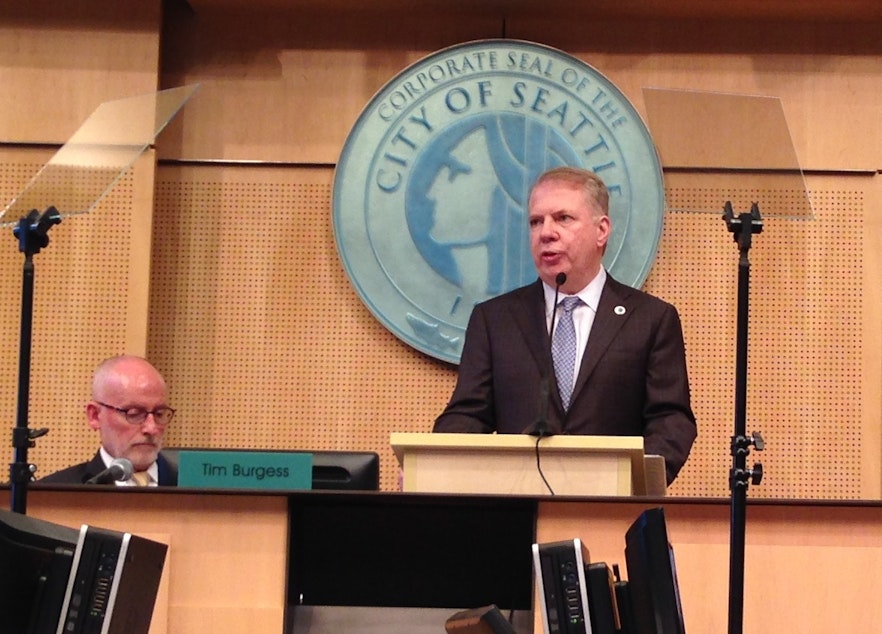‘Sanctuary’ policy could cost WA $12M in annual DOJ grants

A federal showdown with sanctuary cities continues to heat up. U.S. Attorney General Jeff Sessions issued new warnings to jurisdictions seen as “uncooperative” on immigration enforcement, while officials in Washington state vow they won’t back down.
TRANSCRIPT
Speaking to reporters this week, Sessions echoed previous threats to withhold federal money. And he narrowed in a bit more on specific law enforcement funding at risk for things like community-oriented policing.
Sessions: “Failure to remedy violations could result in withholding grants, terminations of grants, or disbarment or ineligibility for future grants.”
Sessions estimated that $4.1 billion in Department of Justice grants could be at stake in 2017.
Sponsored
Washington state and its local jurisdictions received about $12 million in DOJ law enforcement grants last year, according to the governor's office.
For that money to keep flowing, Sessions said jurisdictions will need to certify they comply with immigration laws and that they don’t block access to immigration or citizenship data.
But what’s still unclear is how the feds will determine potential violations.
Washington state, and several of its cities and counties, have so-called “sanctuary policies” that limit cooperation with the feds. Local officers are directed not ask about immigration status.
Seattle Mayor Ed Murray said Sessions’ threat to cut funds “only strengthens our resolve to fight back.” In an e-mail statement, Murray also took issue with Sessions' claim that sanctuary policies in places like Seattle harm their respective communities.
Sponsored
"If Attorney General Sessions is so concerned about Seattle’s safety, pulling law enforcement dollars from cities nationwide is the height of hypocrisy and makes us less safe," Murray said.
A statement from Governor Jay Inslee’s office said Washington will continue to be a welcoming state, and the state’s polices and practices are consistent with federal law.

